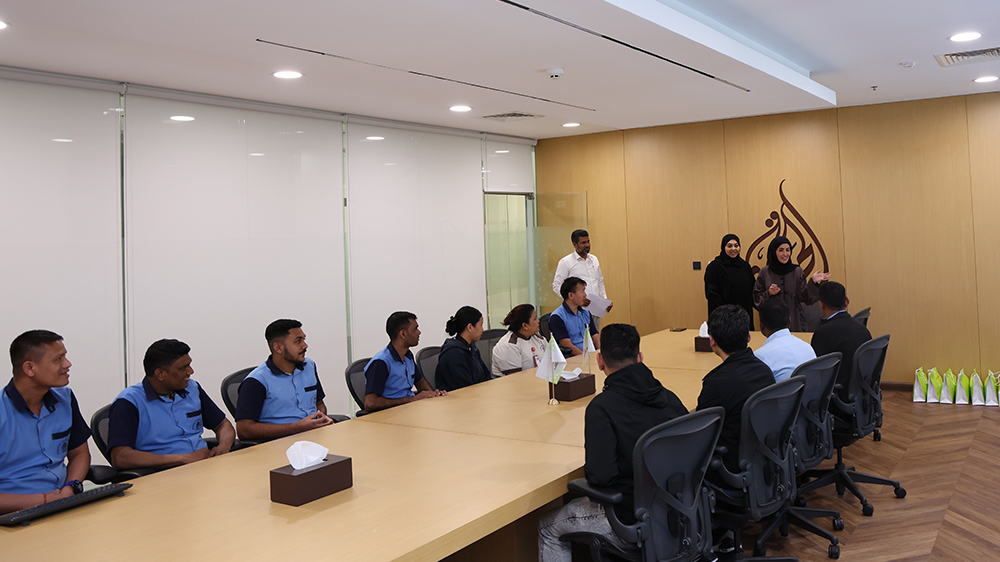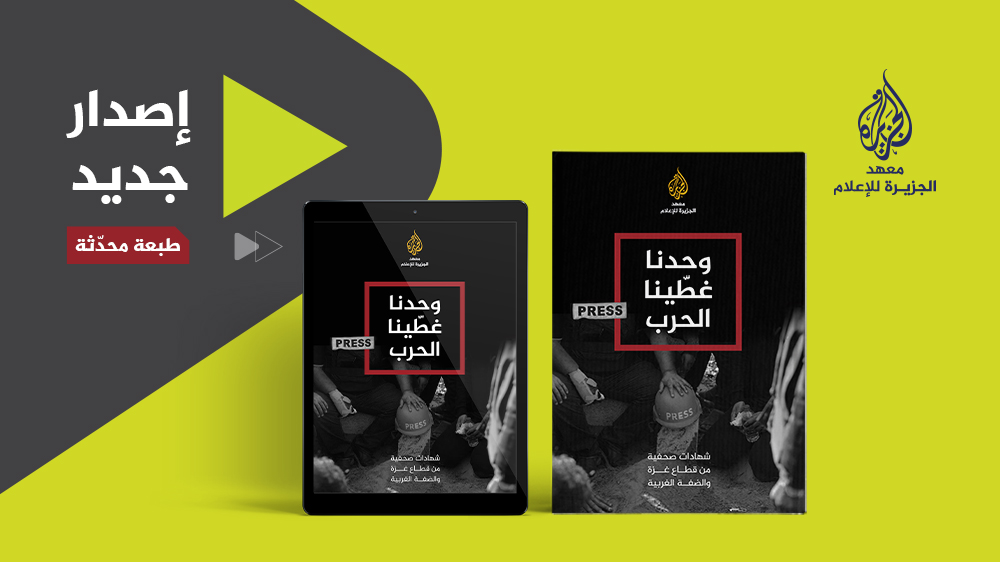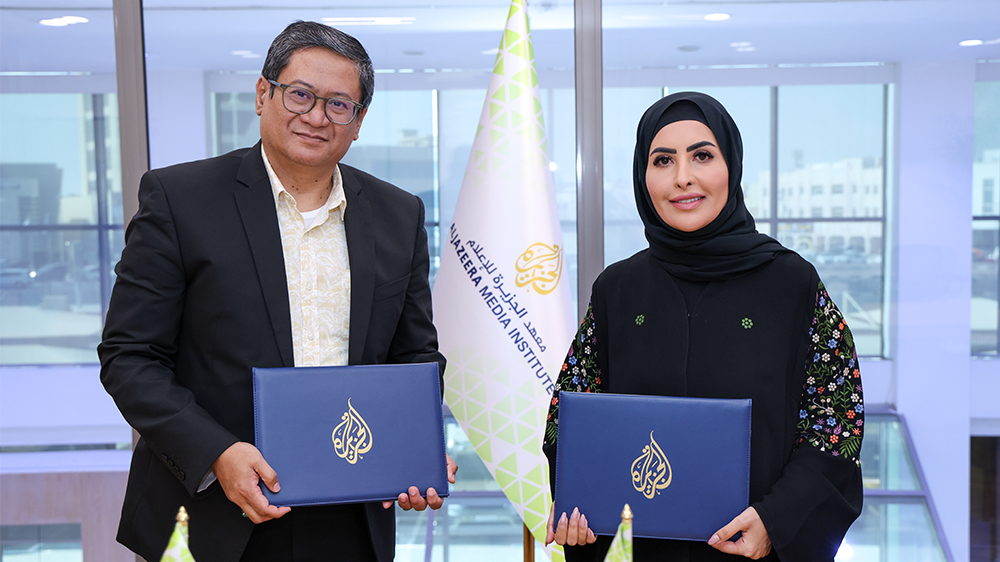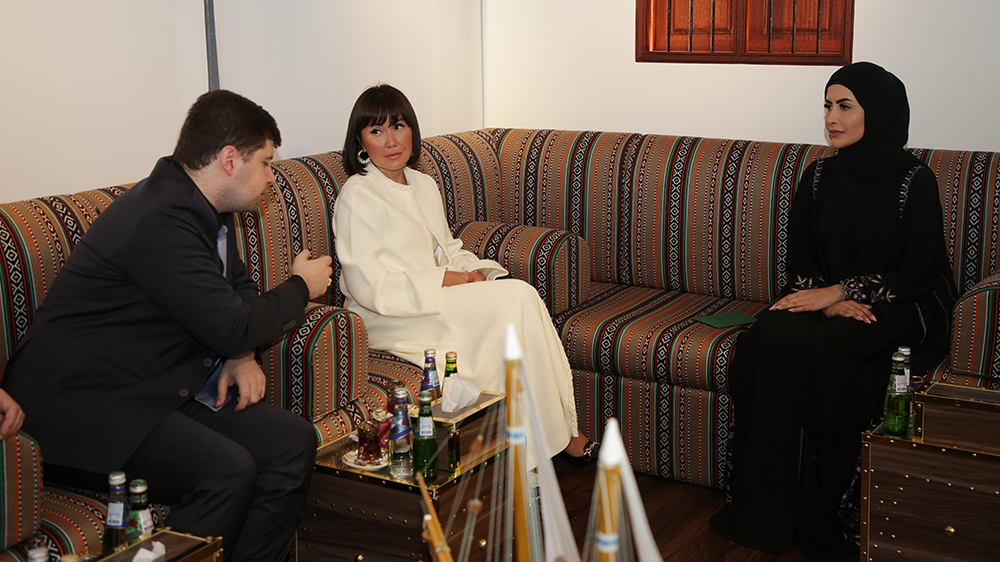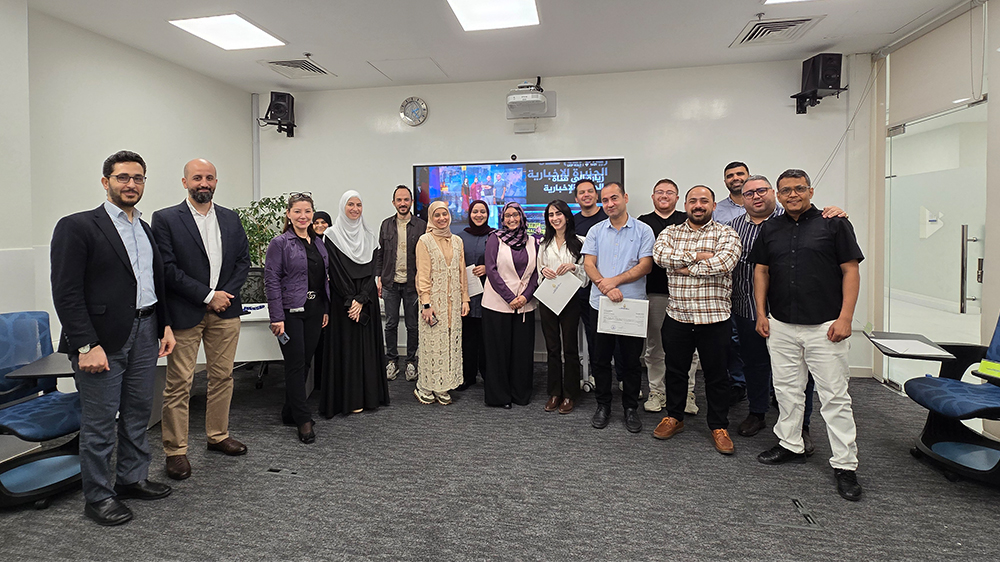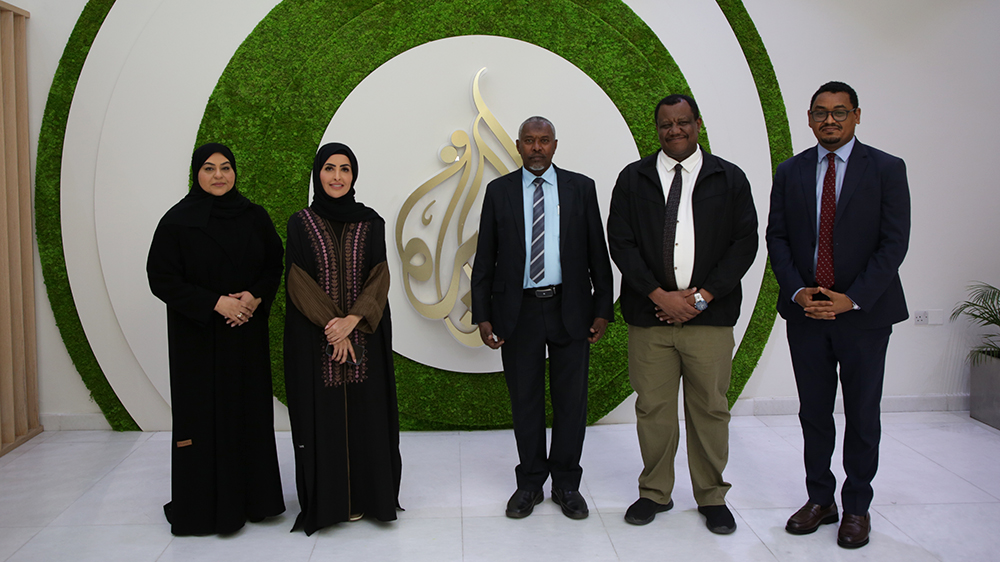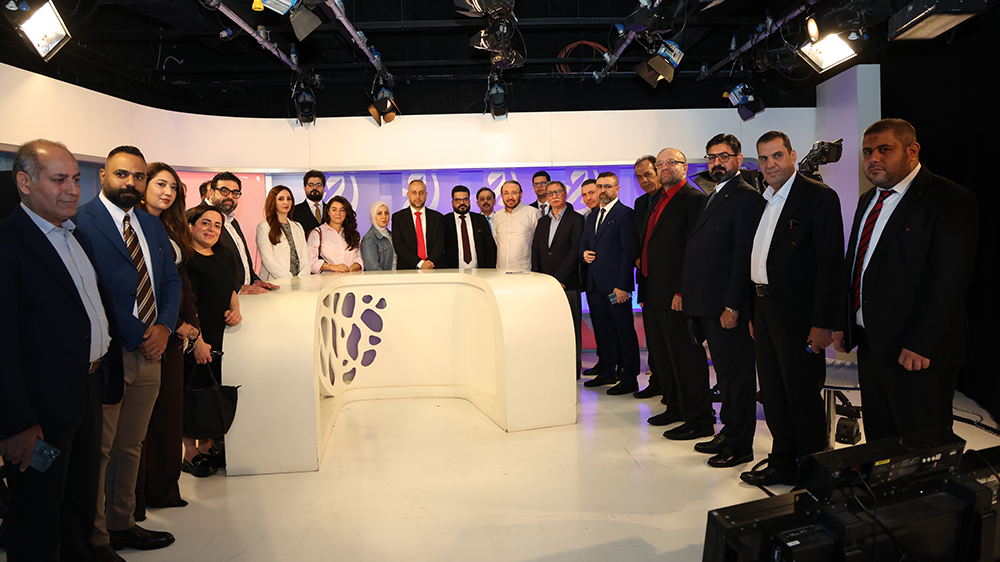News & Events
35.8% increase in demand for "Learn Arabic" program
AJMI - Doha
During the first half of this year, interactive "Learn Arabic" program of Al Jazeera Media Institute held 12 courses attracted 114 students from 23 nationalities, which reflects a remarkable jump in the number of trainees representing an increase of 35.8% compared to the same period last year, where only 84 trainees attended the same number of courses.
Given that courses of this year attracted trainees from new nationalities from East Asian countries such as China and Singapore, and from Africa such as Nigeria, in addition to other trainees of various nationalities such as: Qatar, Bangladesh, Spain, the United States of America, Canada, Italy, Kazakhstan, India, Pakistan, France, Britain and Turkey.
According to the team overseeing these courses, participants age ranged from 16 to 56 years, and the program consists of various levels ranging from primary, intermediate and advanced courses, as well as specialized courses on language of journalism and media.
As for “journalism and media course”, seven learners joined this course, including five media professionals and two persons interest in the field and Middle East issues.
This course relies heavily on analyzing and discussing production of Al Jazeera from media reports and documentaries, where students are trained to understand the most common phrases and language different uses in journalism, especially when dealing with comparisons. The course also sheds light on popular journalistic vocabulary and focuses on frequently talked about terms, such as: "genocide", "war crimes", "individual attacks", and other terms that form an essential part of the language of contemporary media.
The program of this year trained medical staff in a medical institution in Qatar in order to enable them to communicate in Arabic with patients. These courses focused on the most common terminology and practical situations, contributing to improving healthcare quality and facilitating daily interaction between medical staff and Arabic-speaking patients.
As for the latest in the field of real-time interactive training, the responsible team explained that the program qualification is based on practical assessment of trainees at the end of each semester, where each student is asked to prepare an illustrated graduation project that reflecting language and communication skills acquired during the course. In addition, each student must give a presentation in front of his classmates in order to give him an opportunity to practice skills of presentation and public speaking in Arabic.
This training approach aims to monitor a student's development in a tangible way and compares his performance before joining the program and at the end of the course, which enhances effectiveness of training and gives students the opportunity to identify their strengths and points of improvement in a practical and interactive way.
As to evaluation process adopted by the Institute for "Learn Arabic" program, the responsible team explained that the program is based on well-established international standards in the field of language teaching.
The most prominent of these standards is the Common European Framework of Reference (CEFR), which is adopted in most European countries for teaching second languages, in addition to the American "Active" standards, which were developed by specialized bodies in the United States and are widely applied globally.
The team stressed that the program attaches particular importance to CEFR standards, as they are adopted as a basis for determining students' levels and setting conditions for success and advancement within the courses, which ensures education quality and evaluation transparency in line with international best practices in the field of language education.
As for general conditions set for passing courses of "Learn Arabic" program, the learner is required to succeed in each level with a minimum of 70%. The student is also required to attend at least 70% of study hours, as the program requires attending 60 hours of direct instruction and 60 hours of self-learning. If a student exceeds specified absence rate (30% of the total hours), he will not be eligible to get the certificate, unless the teacher deems it possible to assign him additional exercises and duties to improve his level. After completing these requirements and successfully passing the final interview, then the student is awarded the certificate of course completion.
The responsible team emphasizes that quality and discipline standards are applied at all levels of the programme, but that emphasis becomes more serious at advanced levels. This due to the great responsibility associated with granting Advanced Level Certificate, which bears the name and seal of Aljazeera Media Institute, as this certificate may provide its holder with job opportunities in international institutes, especially in Western countries, to teach beginner levels. Therefore, the Institute is keen that no student obtains this certificate unless he is Truely entitled to get it, in order to preserve the status of the program. and the reliability of certificates issued on it merits.
